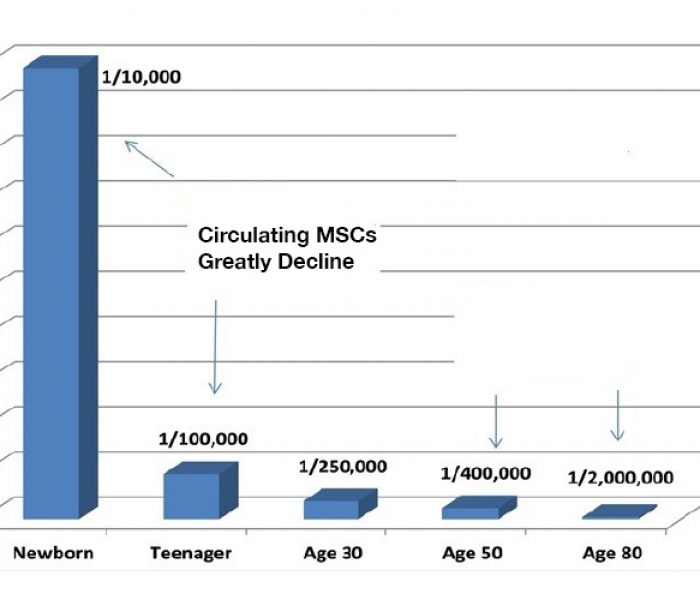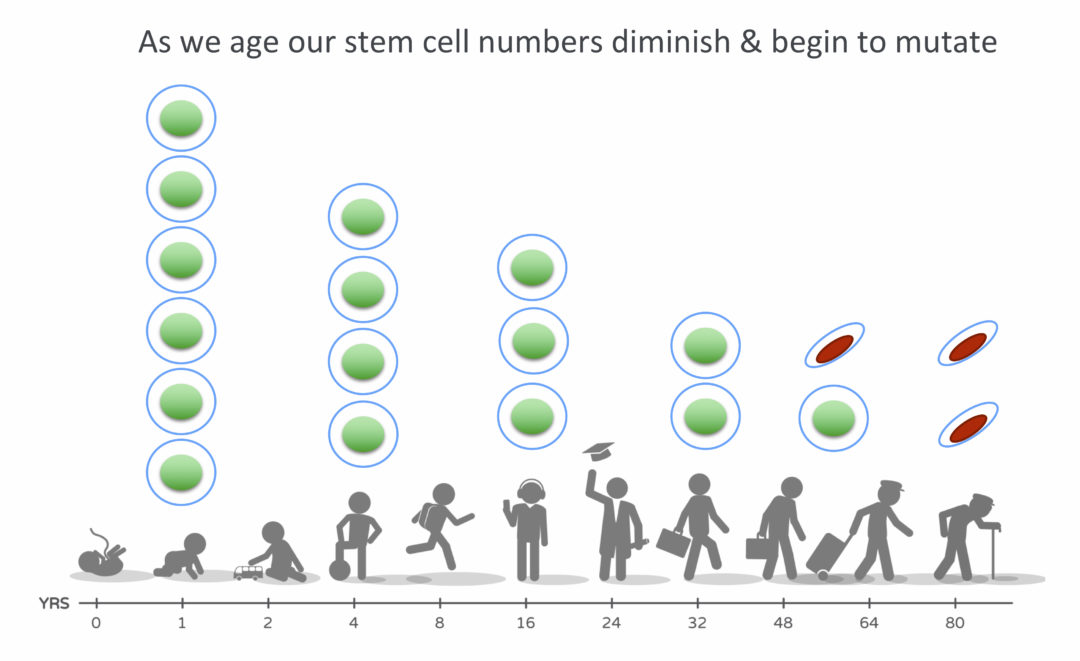As We Age
Stem Cells During The Aging Process
When we are born we have a high number of stem cells in our bodies to respond to injuries, and repair and regenerate our bodies tissues and organs. This number of stem cells declines throughout life due to the fact our adult stem cells have limited self renewal, hence why we age. When a person is subject to injuries, illnesses and unhealthy lifestyle practise, this decline in stem cell numbers can quickened as more stem cells are forced into use.
Stem Cells: As We Age
There is increasing evidence that the aging process can have adverse effects on stem cells. As stem cells age, their renewal ability deteriorates and their ability to differentiate into the various cell types is altered. Accordingly, it is suggested aging-induced deterioration of stem cell functions may play a key role in the pathophysiology of the various aging-associated disorders.
Understanding the role of the aging process in deterioration of stem cell function is crucial, not only in understanding the pathophysiology of aging-associated disorders but also in the future development of effective stem cell-based therapies to treat aging-associated diseases.


Adult stem cells, also known as somatic stem cells, are found throughout the body in every tissues and organ after development and function as self-renewing cell pools to replenish dying cells and regenerate damaged tissues throughout life.
However, adult stem cells appear to age with the person. As stem cells age, their functional ability also deteriorates. Specifically, this regenerative power appears to decline with age, as injuries in older individuals heal more slowly than in childhood. For example, healing of a fractured bone takes much longer time in elderly than in young individuals.
There is a substantial amount of evidence showing that the deterioration of adult stem cells in the adult phase can become an important player in the initiation of several diseases in aging.






